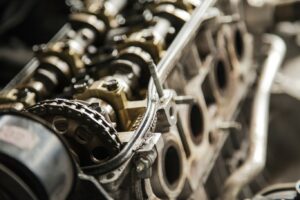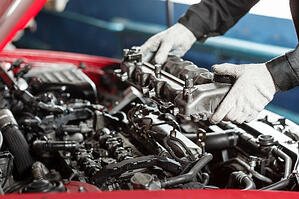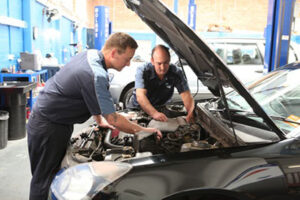Is It Worth Putting a Used Engine in A Car?
On the off chance that you locate the correct used engine, it will be fundamentally less expensive than purchasing another motor and it will perform in any case. The cash spared alone is reason enough for buying a pre-owned motor. At the point when a vehicle proprietor gets the news that their motor is down and out for good, it can put an immense measure of weight on his shoulders simply envisioning the weighty measure of cash he should dispense to get the motor supplanted. Some vehicle proprietors may even believe, “What’s the point? Why not simply search for another vehicle?” However, most vehicle proprietors don’t think about the idea of buying a used motor. But the truth is a used engine not only helps in saving your money but also works for several years. So if you ask whether a used engine is worth it , yes it is completely worth it !
There is another advantage as well. Normally people dont have an idea that a used engine also saves environment. Used engines help nature since we are reusing entirely acceptable motors by using them for to the extent that this would be possible before they should be discarded.
Wrapping It Up
The motor is the most fundamental part of any vehicle. Without its ideal working, everything else passes by the wayside. The motor you introduce as a substitution for a wrecked one ought to be dependable, regardless of whether it’s utilized. There are a lot of solid, utilized motors that should be reused and are completely fine given an intensive assessment. On the off chance that you need another motor introduced in your vehicle, first make certain to go to a technician that knows how to examine an engine.
A portion of the things that auto authorities search for in used motors are low mileage and signs of past major issues. They discover what issues may come up, assuming any, and how to fix them before introducing them into another vehicle. Some of the time used engines even accompany warrantees. This can be another approach to guarantee that your acquisition of a pre-owned motor stays ensured for an all-inclusive timeframe.

Benefits of replacing your engine instead of buying a new car
No one wants to be put in a situation where they have to decide between replacing their car engine or just buying a new car. This reality happens often, though, so you have to weigh your options. Unfortunately, neither option is cheap, but most of the time it makes sense to replace your engine for many reasons. Here are some of the main benefits of replacing your vehicle’s engine instead of buying a new car.
INSURANCE PREMIUMS WILL NOT RISE
Consider replacing your engine rather than buying a new car.When you buy a new car, chances are your insurance premiums are going to rise. But when you replace the engine of your car, you’ll continue with the same insurance coverage and the vehicle is still considered to be the same age. And you don’t have to add full coverage insurance if you don’t want to.
REGISTRATION FEES WILL REMAIN THE SAME
Newer vehicles in New Jersey often come with higher registration fees, so this is another thing to consider if you’re looking into buying a new vehicle. The increase in these fees many not seem significant, but they can add up over time. Your registration fees will remain the same if you simply replace your car’s engine.
DON’T WORRY ABOUT A CAR PAYMENT
Car payments can be burdensome. While you may just want to wipe your hands clean of your old car and get behind the wheel of a new car, it may make more sense financially to just replace the engine. Once the replacement engine is paid off, you’ll be free of car payments, and this feat will be accomplished much earlier than if you bought a new car.
WARRANTY BENEFITS OF A NEW ENGINE
The warranty for a replacement engine is three years or 100,000 miles. Once it’s installed, you won’t have to worry about it for at least that duration when you get your engine replaced at DeBoer’s Auto.
IT TAKES LESS ENERGY TO REPLACE AN ENGINE
From an environmental perspective, less energy is used to rebuild and replace a car engine compared to building a new car from scratch. So another side benefit of having your engine replaced is to be friendlier to the environment.

Things to Consider Before Swapping an Engine:
Wiring
Wiring is always a constant problem for people, no matter what size project they are taking on, but especially in modern engine swaps. Wiring can be very complex and it requires a lot of understanding about amperage, wire gauge, relays, and overall circuits. A perfect example is the electric fan circuit. A lot of people run two wires (power and ground), but the circuit needs to be tied into the cooling system, air conditioning system and the system needs one or two relays.
Cooling Systems
Cooling systems aren’t tricky, but many people just underestimate the volume of work that goes into it. Mechanical fans will work OK with older engines, but today’s engines run hotter and require a lot more cooling. Most people just don’t think about specific functionality of the modern engine they are installing and reinstall the mechanical fan or they hook-up a cheap electric fan that doesn’t have enough flow.
Headers
Most people know or have a good idea that the exhaust manifolds are going to need to be modified. However, it isn’t until the engine is sitting in the engine compartment that they realize how complex the issue can be and people can quickly get in over their heads. Steering linkage, spark plugs and wires can really cause some headache when fabricating a header. By the time most people have a good mental image of how the headers need to lay out, they come to the realization that the tubing is going to hit the frame or body, and have to start from scratch again—a common and costly mistake.
Oil Pans and Pick-Up Tubes
Since most chassis and cross-members are in different locations, oil pan clearances are often a problem. Luckily, with the wide variety of aftermarket oil pans out there, people usually don’t have to build custom pans and pick-up tubes. It takes a little more effort to find exactly the right fit.
Steering
Steering linkage can get tricky when trying to figure out how to navigate past the headers and around everything. In addition to that, many people upgrade their suspension and steering systems at the same time as the engine. With the wide variety of aftermarket components available, sometimes the combination of parts used can require an odd combination of steering linkage.
Air Conditioning
Late-model engines usually have mounting brackets or bosses for air conditioning compressors. While this can make it convenient, the compressors are usually mounted on the lower sections of the engine. This can create problems when trying to get an engine between the frame rails. So, mounting the compressor in a different location is often necessary. In addition to the compressor, a lot of people have problems laying out the system and figuring out where the accumulator/dryer or fixed orifices go.

Fluid Reservoirs
One commonly overlooked modification is that in general all of the reservoirs need to be changed. The cooling system isn’t a big deal, but the power steering reservoir can be tricky. Packaging gets really tight and sometimes a remote mount reservoir is needed.
Driveshaft
While a driveshaft doesn’t seem like a big deal, people will sometimes run into problems either measuring the driveshaft or selecting the right yoke or flange. Once in a while, we run into a problem where people don’t tell the drive shaft shop that they put a blower on the car and it has 800 hp. So, they will bend the driveshaft or kick it out the side of the car when they hammer it.
Fuel Systems
Most people know they need larger and higher-quality fuel lines and better filtration. Where they run into problems is selecting the right fuel pump. We usually recommend people try and use a factory-style in-tank pump for their daily driver,” says Meyers. “Frame-mounted high-volume pumps vibrate, run hot and usually aren’t designed for extended driving cycles. So, failure, and cabin noise can be a problem.
Dangers of Engine Swapping- What You Need to Know
What happens when you put a more powerful engine into a different set of chassis or smaller car? Sometimes magic happens and you’ve Frankenstein’d your way to a real muscle or supercar. An engine swap is the process of removing a car’s original engine and replacing it with another. This is usually done either because of failure, or to install a different engine, usually one that is bigger and better to make your car more powerful and or economical. Sometimes older engines may have a shortage of spare parts and so a modern replacement may be more easily and cheaply maintained.
Swapping to a diesel engine for improved fuel economy is a long established practice, with modern high efficiency and torque diesel engines this does not necessarily mean a reduction in performance associated with older diesel engine swaps. For the particular application of off-road vehicles the high torque at low speed of turbo diesels combined with good fuel economy makes these conversions particularly effective. Here on shoptalk we wouldn’t promote swapping you engine since it is an easy way to void your coverage but if you are a hobbyist extending the life of your car beyond 10+ years we have compiled a guide to 10 of the top 10 things people commonly forget or underestimate when doing a late-model engine swap.